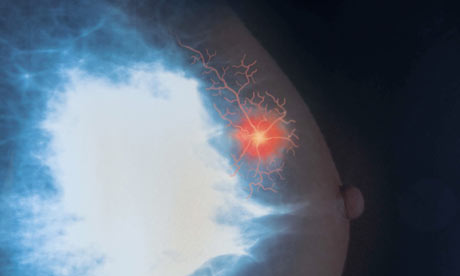
Broadly speaking, my role involves x-raying women who come for breast screening, either through the national breast screening programme, which invites women aged 50-70 every three years, or GP referrals. Breast tissue is fatty and glandular, so it's not like x-raying a leg or wrist. It is more foggy. You put the breast on the x-ray plate and, in order to get a good reading, you have to spread the breast tissue out. It is a very intimate job; you can't do it without being in the patients' personal space and them in yours. I try to treat the women as I would want my mother or grandmother to be treated, and I have had a mammogram myself so I know what it's like. Once the x-ray film is taken, it is read twice, first by a radiologist and then by an advanced practitioner, so that there is less chance of anything being missed.
My week depends on the needs of the service. When I'm off in the mobile screening van, which is normally parked in supermarket car park, between 50 and 55 women are invited each day to come for screening. The first session is booked for 9am and our last appointment is 4.30 pm. Some of the women come to see us regularly, so they are quite relaxed. But ladies who have not been before can be apprehensive, so you need good interpersonal skills to reassure them. Sometimes they sit down, and in three minutes they have told you their life story – it all spills out. Knowing how to deal with women who are upset can be difficult, and the work can be repetitive, so it's hard to be as bubbly at 4pm as you were at 9am.
I've been in the job for 20 years, and it doesn't matter what your line of work is, some people will agree with it and some won't. A recent study published in the British Medical Journal questioned whether routine mammography programmes successfully reduce death rates, but studies like that can discourage women from coming for their appointment. Also, if you talk to women in cases where cancer was picked up early, they are very positive that it was noticed before it developed and needed more invasive treatment. As with any other screening, we go because we want to know if we are OK or not.
Ruth Otto is senior mammographer for Greater Manchester

